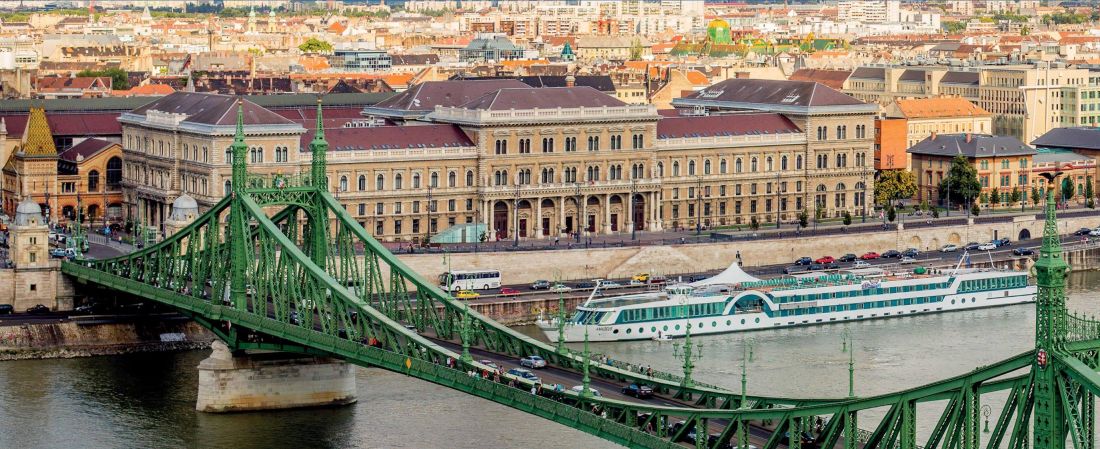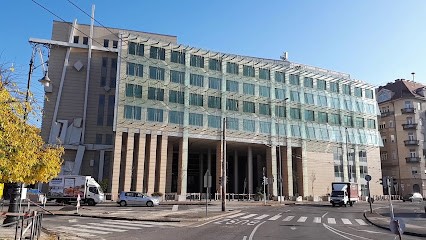Hungarian Regional Science Association (HRSA)
7621 Pécs, Papnövelde u. 22.
H-7601 Pécs, P.O. Box 199.
SWIFT: MKKBHUHB
IBAN: HU37 50800111-11090603-00000000
Tel: +36 (72) 523 800
E-mail: mrtt@mrtt.hu
Facebook: mrtt.hu
New forms of territorial disparities and transforming regional policy
Budapest, 4–5 November 2021
Corvinus University of Budapest
HUNGARIAN REGIONAL SCIENCE ASSOCIATION 19th ANNUAL MEETING

For the complete program please visit the Hungarian site of the conference.
♦ PROGRAMME ♦ 4 November 2021 ♦ Central European Time ♦
9.00 General meeting (for HRSA members)
10.00 Annual meeting
Opening speech – Prof. Előd Takáts rector, Corvinus University of Budapest
10.10 Plenary session 1 (in Hungarian)
Imre Lengyel professor, Faculty of Economics and Business Administration, University of Szeged
Géza Salamin associate professor, Department of Geography, Geoeconomy and Sustainable Development, Corvinus University of Budapest; president, Hungarian Society for Urban Planning
Pál Szabó associate professor, Department of Regional Science, Eötvös Loránd University
12.00 Lunch
13.00 Parallel sessions (6 in Hungarian, 2 in English)
15.30 Coffee break
16.00 Plenary session 2 (in English)
Petr Pavlínek professor, Charles University, Czechia; University of Nebraska, Omaha
The changing geography and spatial structure of the European automotive industry
17.00 Roundtable discussion on Cohesion Policy (in Hungarian)
18.30 Prize award ceremony
19.00 Reception
♦ PROGRAMME ♦ 5 November 2021 ♦
9.00 Parallel sessions (6 in Hungarian, 1 in English)
12.00 Lunch
13.00 Plenary session 3 (in Hungarian)
Sándor Kerekes professor emeritus, Corvinus University of Budapest
Györgyi Nyikos associate professor, Department of Public Finance, University of Public Service
Judit Berkes assistant professor, Széchenyi István University
14.30 Coffee break
15.00 Parallel sessions (7 in Hungarian, 1 in English)
17 parallel sessions are organized in Hungarian, 2 parallel sessions are in English.
SESSION 1 Regional Economies in Change: Networks, Development and Resilience
Session organizers: Balázs Lengyel senior research fellow, KRTK ANET Lab & NeTI Lab of Corvinus University – Zsófia Vas associate professor, University of Szeged – Zoltán Elekes research fellow, KRTK ANET Lab & Umeå University
Session 1.1 Thursday (4 November), 13:00–15:30 CET
Chair: László Czaller junior research fellow, KRTK KTI ANET Lab
Balázs Lengyel senior research fellow, KRTK KTI ANET Lab & BCE NETI Lab
Co-worker networks and firm performance
Štefan Rehák associate professor, University of Economics in Bratislava
History of science in Europe 1970–2010. Does urban scaling law apply to university publications?
Miroslav Špurek PhD-student, University of Economics in Bratislava
Large-scale analysis of university patenting in the innovation activities of European regions
Gergely Tagai research fellow, KRTK RKI ATO
New (and old) disparities of European knowledge production: the case of research collaboration networks
László Czaller junior research fellow, KRTK KTI ANET Lab
A theoretical foundation for the gravity model of research collaborations
Session 1.2 Friday (5 November), 9:00–12:00 CET
Chair: Zoltán Elekes research fellow, KRTK KTI ANET Lab
Tim Gittins associate professor, Corvinus University Budapest
The response of Hungarian SMEs to the Covid-19 pandemic: a Resilience Adaption Model
Zita Iloskics junior lecturer, University of Pécs
Shock propagation channels behind the global economic contagion network. The role of economic sectors and the direction of trade
Erik Braun junior lecturer, University of Pécs
A measure of economic structural resilience
Zoltán Elekes research fellow – Gergő Tóth junior research fellow, KRTK KTI ANET Lab
Robust networks make resilient regions
Zsuzsanna Zsibók research fellow, KRTK RKI DTO
High-pressure economy in the Hungarian regions before and after the pandemic crisis
Session 1.3 Friday (5 November), 15:00–18:00 CET
Chair: Balázs Lengyel senior research fellow, KRTK KTI ANET Lab & BCE NETI Lab
Norbert Szabó junior lecturer, University of Pécs
The economic impact assessment of entrepreneurial ideas in the Smart Specialisation Policy: illustrative policy simulations in Baranya county
Balázs Páger research fellow, KRTK RKI DTO
Regional variation of the entrepreneurial activities: the role of the entrepreneurial ecosystem
Ádám Kovács research assistant, KRTK KTI ANET Lab
Spatially concentrated social capital of urban residents
Virág Ilyés research fellow, KRTK ANET Lab & BCE NETI Lab
How to enter high-opportunity places? The role of Social Contacts in Residential Mobility
Sándor Juhász research fellow, BCE NETI Lab
Creation and persistence of business transaction ties: The role of business and ownership connections
SESSION 2 Territorial disparities and regional policy Thursday (4 November), 13:00–15:30 CET
Chair: Gábor Lux senior research fellow, CERS Institute for Regional Studies
Feyrouz Ahlam Saidi PhD student, University of Debrecen, Department of Social Geography and Regional Development
Territorial disparities and regional policy in Algeria
Muthama Wencelaus Musyoka PhD student, University of Pécs, Doctoral School in Regional Policy and Economics
Fiscal decentralization continuum and their impact on subnational government performance: Lessons from Kenya and Hungary
Isaiah Juma Maket PhD student, University of Szeged, Faculty of Economics and Business Administration
Reverse causal nexus between pro-poor policies and income inequality in Kenya.
Petra Szávics PhD student, Babeș-Bolyai University – József Benedek professor, Babeș-Bolyai University
From bottom-up planning to the use of funds. RIS3 implementation in Romanian less developed regions in light of regional disparities
Balázs István Tóth associate professor, director, University of Sopron, Lamfalussy Research Centre
A mission not impossible: Reducing regional disparities by improving territorial capital. The case of Central Europe
Aida Musaeva PhD Candidate, University of Pécs, Doctoral School in Regional Policy and Economics
Is Korean-led Saemaul Undong a Local Economic Development model for Kyrgyzstan?
VENUE
Budapesti Corvinus Egyetem
(1093 Budapest, Közraktár u. 4.)
C building

Map: https://goo.gl/maps/cY4w3KjXQXn6tMAe7
ABSTRACT SUBMISSION (sessions in English)
Deadline: 10 October 2021
Abstracts (max. 500 words) should be submitted by e-mail to the convenors of the sessions. Presentations of 20 minutes are welcomed.
REGISTRATION ► Registration website
Registration period (online): From 15 September to 10 October 2021.
Participation fee includes up to 2 presentations. Payment is required after abstract acceptance and registration.
REGISTRATION FEES (for non-domestic participants and organisations)
90 EUR for Non-members of RSAI/ERSA
70 EUR for RSAI/ERSA members
50 EUR for Accompanying persons / Attendee without presentation
PUBLISHING OPPORTUNITY
In thematic Issue 3, 2022 of DETUROPE (Scopus) after double-blind peer-review process or in Issue 4, 2022 of Tér-Gazdaság-Ember. Details in Hungarian website.
CO-ORGANISER
IIPRS Department of Geography, Geoeconomy and Sustainable Development Corvinus University of Budapest
CONTACT
Szilárd Rácz, HRSA secretary szracz@rkk.hu.
We reserve the right to change the program (depending on the epidemic situation).
We are looking forward to meeting you at the Annual Conference of HRSA in Budapest.
Kind regards,
Zoltán Gál, President of HRSA